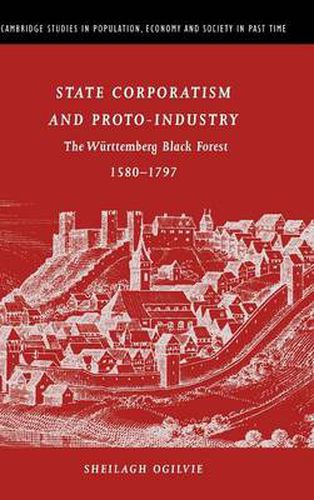Readings Newsletter
Become a Readings Member to make your shopping experience even easier.
Sign in or sign up for free!
You’re not far away from qualifying for FREE standard shipping within Australia
You’ve qualified for FREE standard shipping within Australia
The cart is loading…






State Corporatism and Proto-Industry focuses on an industrial countryside in southwest Germany, where a dense worsted industry dominated the rural economy from 1580 to 1800. This is an example of ‘proto-industry’, the dense, export-oriented rural manufacturing which arose throughout Europe before factory industrialisation. But although the Wurttemberg worsted industry possessed all the features of a classic proto-industry, closer scrutiny throws doubt on basic assumptions about European proto-industrialisation. In this book, Sheilagh Ogilvie shows that proto-industries did not break down traditional society. Instead, corporate institutions such as guilds, merchant companies, village communities and manorial systems retained enormous power. This was a result of ‘state corporatism’: the expanding early modern state granted privileges to favoured groups in return for fiscal and regulatory co-operation. As Ogilvie shows, these corporate privileges profoundly constrained both individual decisions and economic development.
$9.00 standard shipping within Australia
FREE standard shipping within Australia for orders over $100.00
Express & International shipping calculated at checkout
State Corporatism and Proto-Industry focuses on an industrial countryside in southwest Germany, where a dense worsted industry dominated the rural economy from 1580 to 1800. This is an example of ‘proto-industry’, the dense, export-oriented rural manufacturing which arose throughout Europe before factory industrialisation. But although the Wurttemberg worsted industry possessed all the features of a classic proto-industry, closer scrutiny throws doubt on basic assumptions about European proto-industrialisation. In this book, Sheilagh Ogilvie shows that proto-industries did not break down traditional society. Instead, corporate institutions such as guilds, merchant companies, village communities and manorial systems retained enormous power. This was a result of ‘state corporatism’: the expanding early modern state granted privileges to favoured groups in return for fiscal and regulatory co-operation. As Ogilvie shows, these corporate privileges profoundly constrained both individual decisions and economic development.